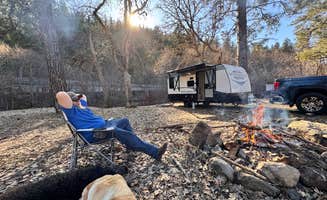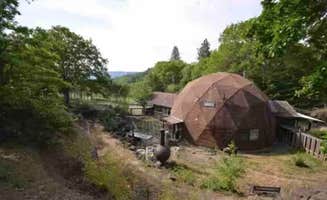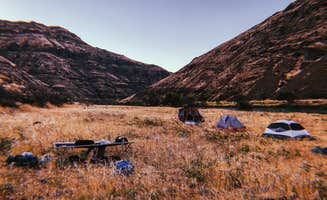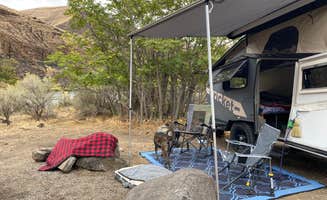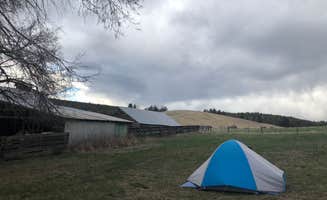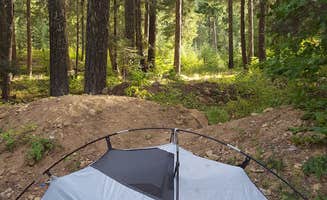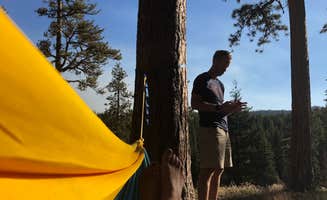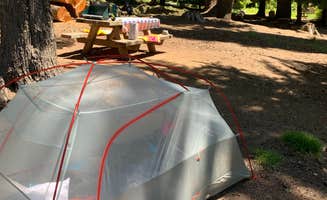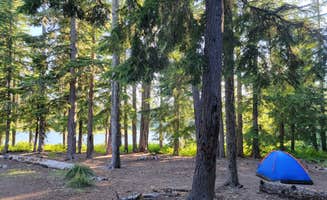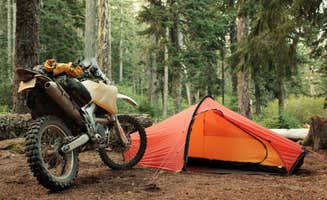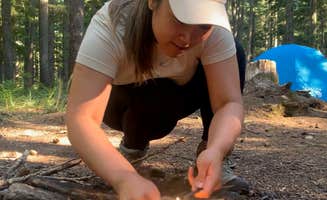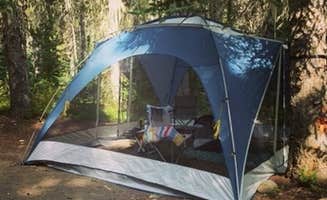Tent campsites near Goldendale, Washington provide access to diverse terrain ranging from dense forest to open grasslands. The area sits at elevations between 1,600 and 3,000 feet with significant temperature drops at night, even in summer months. Summer daytime temperatures often reach the 90s while nighttime can drop to the 40s, requiring campers to pack accordingly.
What to do
Fishing opportunities: Council Lake offers quality trout fishing in a serene setting. "The trout fishing is great here, but bring some mosquito repellent or you'll be sorry," notes one visitor. Electric or hand-operated boats are allowed, making it ideal for anglers seeking a quiet experience.
Paddling exploration: Goose Lake Campground provides excellent non-motorized boating options. A camper reported, "Last year we brought our paddle boards and had a great time on the water." The campground prohibits motorized boats, creating a peaceful lake experience for paddlers.
Hiking trails: Access to the Pacific Crest Trail and Council Bluff trail system offers varied difficulty levels for day hikes. "There is a trail that starts in the middle of the campground and takes you to an amazing view of the mountains and the lake," mentions a Council Lake visitor. Many trails provide vistas of Mt. Adams and surrounding wilderness areas without requiring technical hiking skills.
What campers like
Secluded sites: Trout Creek campground offers privacy among dense forest. A camper noted it as "A family favorite. A quiet campsite set along Trout Lake Creek in a deeply wooded area." Sites are separated by natural vegetation for privacy while maintaining access to creek water.
Lake access: Forlorn Lakes provides unique lakeside camping with semi-private water access. "All are lakeside on 'private lakes'. The only way to gain access to the lakes it through the campsites (the rest of the lake is overgrown and inaccessible)," explains one reviewer. Campsites 16-21 are positioned on a larger lake with direct swimming access.
Wildlife viewing: Morning and evening hours present opportunities for wildlife observation from most campsites. At Trout Creek, campers can find "A short trail through an old growth forest with breathtaking trees." The area supports diverse bird species, deer, and occasional river otters in lake environments.
What you should know
Road conditions: Access roads to most campgrounds require careful driving. For Macks Canyon Recreation Site, a visitor warns, "I have never experienced a washboard road as bad as this was for 6-7 miles. I thought the doors were going to blow off the truck." High-clearance vehicles are recommended for accessing many sites.
Site availability: Most campgrounds fill quickly on summer weekends. "If I come back it would be for a day trip to fish but not to camp out over night," notes one camper about Council Lake during peak season. Mid-week arrivals significantly increase chances of finding available sites.
Weather considerations: Evening wind patterns can be intense in canyon areas. At Macks Canyon, "The wind kicks up (strong) around 7:30p to 8:30p." Proper tent staking and positioning are essential, particularly for sites along river corridors where wind funnels through canyons.
Tips for camping with families
Best swimming areas: Look for lakes with gradual shorelines for safer water access. At Pebble Ford Campground, "The sites are HUGE! Refreshing to see, and how cool to get here and take over all three with a party." The spacious sites accommodate multiple tents for family camping.
Wildlife encounters: Prepare children for potential wildlife sightings with proper behavior guidelines. A camper at Pebble Ford mentioned, "Had some deer walk right through our camp spot while we sat by the fire." These encounters provide educational opportunities when families maintain appropriate distances.
Space requirements: Select larger sites when camping with multiple family members. At Forlorn Lakes, site 16 has "lots of room for tents and two picnic tables for a large group." The spacious design allows families to spread out while maintaining a communal area.
Tips from RVers
Size limitations: Most forest service campgrounds have narrow access roads unsuitable for larger RVs. When visiting Council Lake, a camper advised, "It's a bit of a bumpy road in, most cars should be fine, but no RVs or long trailers." Site dimensions typically accommodate smaller trailers and camper vans only.
Leveling challenges: Prepare for uneven terrain at most sites. At Goose Lake Campground, "Campground was clean and well maintained. Not a lot of beach space other than a little at the day use. The only downside is the campsites are all on a hill." Bringing leveling blocks is essential for comfortable RV camping in this region.


